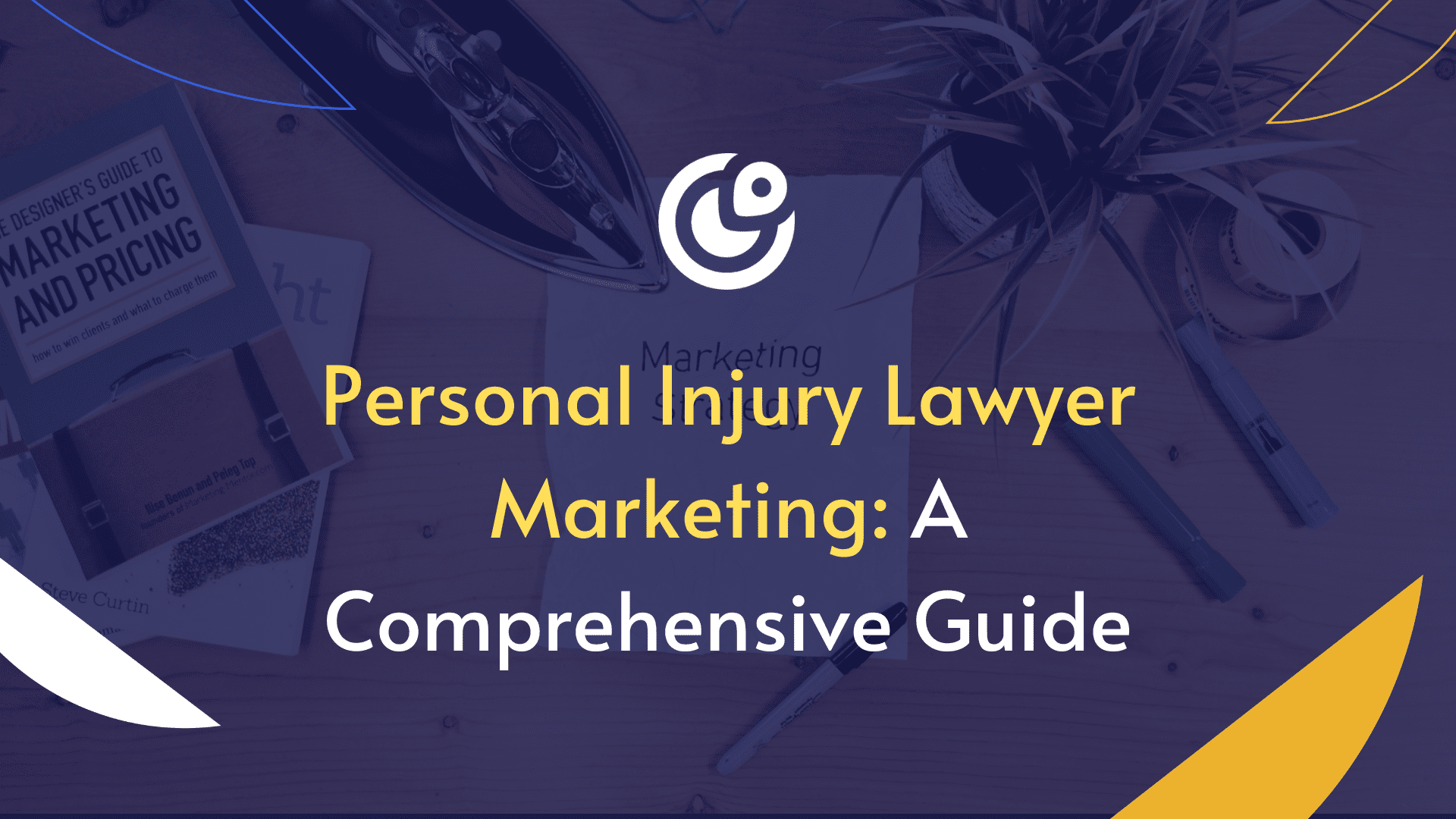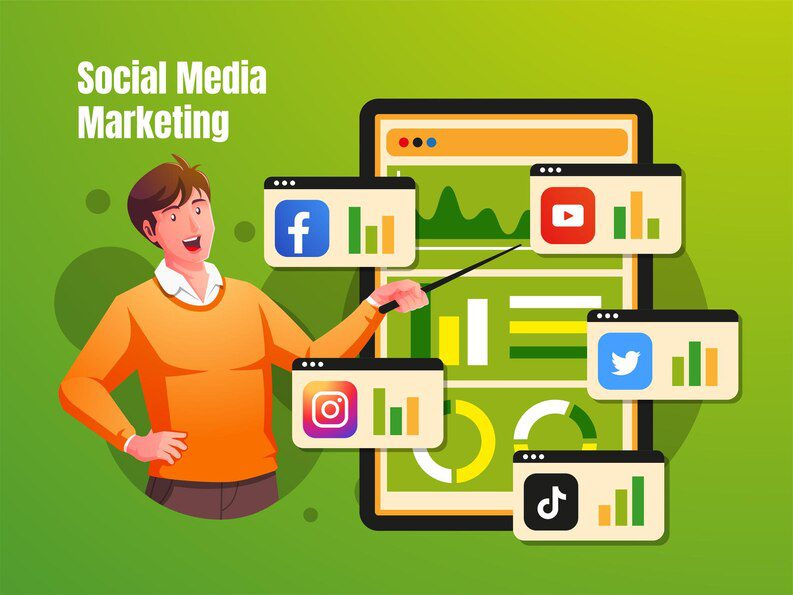In the present times of social media and ongoing advancements in technology, it is important that a personal injury lawyer builds their personal reputation. It can be seen that in the current times social media is heavily being used as a tool in order to enhance businesses, spread awareness and establish professional brands and images. It also has impacted how lawyers present themselves online and it has affected their overall image. In this article, we will discuss how a personal injury lawyer can use social media for effective marketing and brand development.
Comprehending Personal Injury Lawyer Marketing
Personal injury marketing comprises promoting legal services and expertise of personal injury lawyers. Most importantly, this marketing targets injured people who are in a dire need of a personal injury lawyer as they need assistance with their case. The prime goal of personal injury lawyer marketing is to establish trust between lawyers and the audience, to attract clients who need help and to ensure that they are aware of the best skills of the personal injury lawyer.
The Power of Branding and Reputation
Branding encompasses the image, values, and unique selling propositions that distinguish a personal injury lawyer from competitors. A well-developed brand can help lawyers stand out in a crowded marketplace, attract clients, and foster trust. Reputation, on the other hand, is built through a lawyer’s track record, client testimonials, and public perception. Positive reputation enhances credibility and encourages potential clients to seek legal assistance.
The Role of Social Media in Personal Injury Lawyer Marketing
Social Media as a Marketing Tool
Social media platforms have ushered in a new era of connectivity, transforming how businesses engage with their target audience. For personal injury lawyers, these platforms offer an invaluable opportunity to enhance their marketing efforts and establish deeper connections with potential clients.
Widely used platforms such as Facebook, Twitter, LinkedIn, and Instagram present personal injury lawyers with avenues to expand brand awareness, share valuable content, and forge meaningful relationships.
Facebook, with its extensive user base, provides personal injury lawyers with a vast audience to showcase their expertise and legal services. Through informative posts, engaging videos, and live Q&A sessions, lawyers can effectively educate and engage with their followers, fostering trust and credibility.
Twitter is a great social media app that has contributed greatly to how personal injury lawyers present their brands and image. It helps the lawyers to swiftly share legal insights, important news and any updates regarding personal injury. Twitter also allows lawyers to be part of real time conversations where they can prove their expertise online, attract clients and eventually build a great and loyal audience.
LinkedIn is also a helpful platform like Twitter for personal injury lawyers. The predominant difference in these two is that it allows lawyers to build professional relationships with other or fellow professionals like them. Moreover, it also helps them seek potential clients who can utilise the skills of these lawyers. Additionally, personal injury lawyers can market themselves on this platform by engaging in meaningful discussions regarding personal injury.
Instagram, known for its visual-centric nature, allows personal injury lawyers to showcase their human side while offering valuable insights. By sharing behind-the-scenes glimpses, client success stories, and educational content in visually appealing formats, lawyers can captivate their audience and build a strong brand presence. While personal injury lawyers can explore various strategies to enhance their online presence, it’s crucial to approach social media marketing with ethical considerations in mind.
For example, you have a personal injury lawyer business in Singapore but you have zero visibility on social media. In such cases, if you buy Instagram followers Singapore, you will be able to get a wider audience. With this enhanced audience, you will be able to educate people about personal injury rights. Moreover, it will give you long-term benefits in marketing your business. While purchasing followers may offer a quick boost in visibility, it will also attract potential clients to your social media account.
Organic growth and genuine engagement remain the cornerstone of building an authentic and reputable brand on social media. By focusing on attracting followers who are genuinely interested in the lawyer’s services, personal injury lawyers can establish a loyal and engaged audience. These followers are more likely to interact with the lawyer’s content, share recommendations, and potentially become clients.
Leveraging Social Media for Brand Building
Developing a comprehensive social media strategy is essential for personal injury lawyers. This includes identifying the most suitable platforms for reaching the target audience, creating engaging and shareable content, and utilising visual elements effectively.
Lawyers should keep in mind that they must humanise their image or brand. They can make this happen by presenting their skills, the educational background and their professional experience. This will help build trust and it will surely help them attract clients.
Reputation on Social Media
Personal injury lawyers can notice how the audience reacts to certain skills and ways of other personal injury lawyers. They can be a part of online conversations which can help them improve their own skills and performance. Further, they can notice online reviews and comments to critique their own work so they can get better in future. It is important to act professional and answer clients and let them know how you have helped others and how you have improved your work. This can help build trust between the personal injury lawyer and clients and also develop a good reputation.
Ethical Considerations in Social Media Marketing
Personal injury lawyers must navigate ethical considerations when utilising social media for marketing. They should be aware of legal and professional obligations, including maintaining client confidentiality and privacy. Adherence to advertising rules and regulations, such as avoiding false or misleading claims, is crucial to maintain credibility and adhere to ethical standards.
Measuring Success and Adjusting Strategies
To gauge the effectiveness of social media marketing efforts, personal injury lawyers should monitor key metrics such as reach, engagement, website traffic, and conversions. Analysing data and insights can help make informed decisions and refine marketing strategies for better results. Continuously adapting and improving social media strategies based on feedback and market trends is vital for long-term success.
Conclusion
Social media has transformed the landscape of personal injury lawyer marketing, providing unprecedented opportunities for brand development and reputation management. By leveraging social media effectively, personal injury lawyers can establish a distinct brand identity, engage with their target audience, and enhance their reputation. Ethical considerations and strategic adaptation are essential to ensure long-term success in the dynamic world of social media marketing. By embracing social media as a marketing tool, personal injury lawyers can position themselves as trusted advocates and attract clients seeking legal assistance.




































